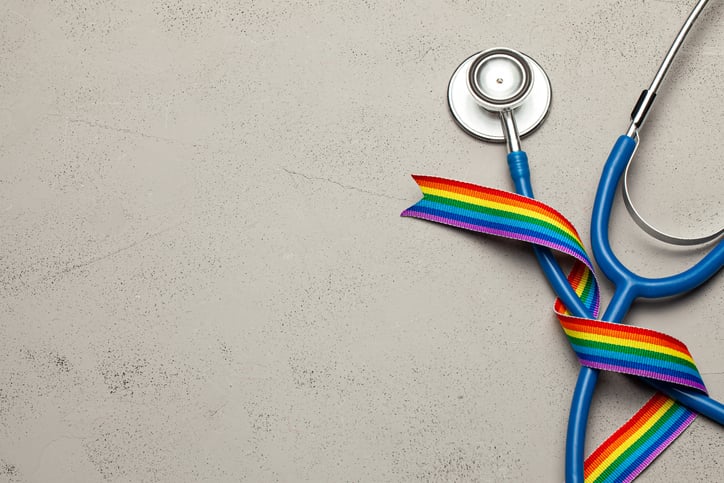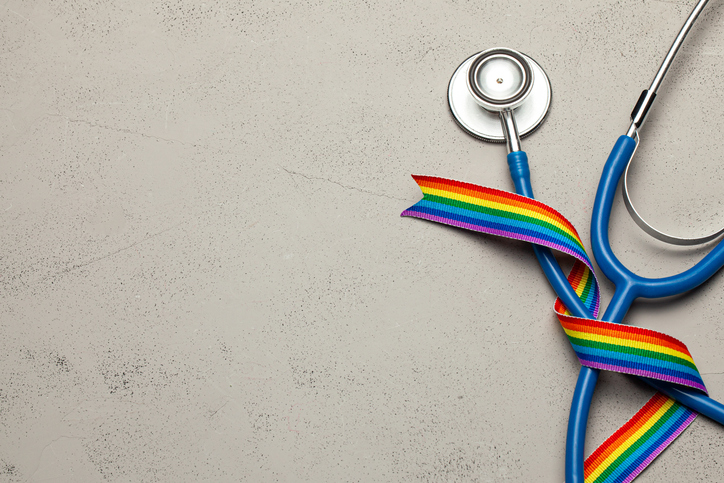 LGBTQ+ people of all ages, races and ethnicities, religions, and social classes have experienced health inequalities.
LGBTQ+ people of all ages, races and ethnicities, religions, and social classes have experienced health inequalities.
According to the Office of Disease Prevention and Health Promotion (ODPHP) and healthypeople.gov, research suggests that LGBTQ+ individuals face health disparities linked to societal stigma, discrimination, and denial of their civil and human rights. Discrimination against LGBTQ+ persons has been associated with high rates of psychiatric disorders, substance abuse, and suicide. Experiences of violence and victimization are frequent for LGBTQ+ individuals, and have long-lasting effects on the individual and the community. Personal, family, and social acceptance of sexual orientation and gender identity affects the mental health and personal safety of LGBTQ+ individuals.
It is difficult to estimate the number of LGBTQ+ individuals and their health needs because most national or State surveys do not include sexual orientation and gender identity questions.
In order to document, understand, and address the environmental factors that contribute to health disparities in LGBTQ+ communities, we need to increase the number of nationally-representative health-related surveys that collect information on sexual orientation and gender identity (SOGI). This will allow researchers and policy makers to accurately characterize LGBTQ+ health and disparities.
The ODPHP and healthypeople.org research has found,
- LGBTQ+ youth are 2 to 3 times more likely to attempt suicide.
- LGBTQ+ youth are more likely to be homeless.
- Lesbians are less likely to get preventive services for cancer.
- Gay men are at higher risk of HIV and other STDs, especially among communities of color.
- Lesbians and bisexual females are more likely to be overweight or obese.
- Transgender individuals have a high prevalence of HIV/STDs, victimization, mental health issues, and suicide and are less likely to have health insurance than heterosexual or LGB individuals.
- LGBTQ+ populations have the highest rates of tobacco, alcohol, and other drug use.
According to the Aging with Pride: National Health, Aging, and Sexuality/Gender Study, about 2.7 million U.S. adults 50 and older identify as LGBTQ+, including 1.1 million age 65 and older. Those numbers are expected to nearly double by 2060.
And among subgroups within the LGBTQ+ community, some are struggling with their health more than others:
- Both Hispanic and African-American LGBTQ+ older adults in the project are more likely to report having HIV than their white counterparts.
- Hispanic LGBTQ+ adults are more likely to report asthma, diabetes and visual impairment.
- African-American LGBTQ+ older adults are more likely to be obese and have high blood pressure.
- Native American LGBTQ+ older adults are less likely to report cancer than whites but more likely to report poor physical health, disability, obesity, asthma and cardiovascular disease.
- Asian/Pacific Islander LGBTQ+ older adults are more likely to have visual impairment.
Along with collecting SOGI information in national surveys and health records, other efforts needed to improve LGBTQ+ health disparities include,
- Better access to health insurance, employment, and housing
- More laws protecting against bullying in schools
- More social programs targeted to and/or appropriate for LGBTQ+ youth, adults, and elders
- Better access to health care providers who are knowledgeable and culturally competent in LGBTQ+ health
- Prevention of violence and homicide toward the LGBTQ+ community, and especially the transgender population
It is necessary that efforts are enhanced to improve LGBTQ+ health and eliminate disparities so LGBTQ+ individuals can lead long, healthy lives.







